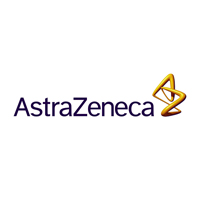AstraZeneca plc (LON: AZN) today announced that the US Food and Drug Administration has issued a complete response letter regarding the supplemental New Drug Application for Farxiga (dapagliflozin) as an adjunct treatment to insulin to improve glycaemic control in adult patients with type-1 diabetes (T1D), when insulin alone does not provide adequate glycaemic control.
AstraZeneca will work closely with the FDA to discuss the next steps.
Farxiga was recently approved in Europe (5mg) and Japan (5mg, potential up-titration to 10mg) under the name Forxiga, as an adjunct to insulin in adults with T1D.
About Farxiga
Farxiga (dapagliflozin) is a first-in-class, oral, once-daily selective inhibitor of SGLT2 indicated as both monotherapy and as part of combination therapy to improve glycaemic control, with the additional benefits of weight loss and blood-pressure reduction, as an adjunct to diet and exercise in adults with T2D. Farxiga has a robust clinical trial programme of more than 35 completed and ongoing Phase IIb/III trials with over 35,000 patients, as well as more than 1.8 million patient-years’ experience.
About DEPICT
The DEPICT (Dapagliflozin Evaluation in Patients with Inadequately Controlled Type-1 diabetes) clinical trial programme consists of two clinical trials, DEPICT-1 (NCT02268214) and DEPICT-2 (NCT02460978), which are 24-week, randomised, double-blinded, parallel-controlled trials designed to assess the effects of Farxiga 5mg or 10mg on glycaemic control in patients with T1D, inadequately controlled by insulin. All patients were evaluated at week 24 and after a 28-week extension (52 weeks in total).
About type-1 diabetes
T1D is a chronic disease in which the pancreas produces little or no insulin. Approximately five per cent of people living with diabetes have type-1. The condition is caused by an autoimmune reaction that destroys the beta cells in the pancreas which produce insulin.1 Different factors, including genetics and some viruses, may contribute to T1D.2
About AstraZeneca in CVRM
Cardiovascular, Renal & Metabolism (CVRM) together forms one of AstraZeneca’s three therapy areas and is a key growth driver for the Company. By following the science to understand more clearly the underlying links between the heart, kidneys and pancreas, AstraZeneca is investing in a portfolio of medicines to protect organs and improve outcomes by slowing disease progression, reducing risks and tackling co-morbidities. The Company’s ambition is to modify or halt the natural course of CVRM diseases and potentially regenerate organs and restore function, by continuing to deliver transformative science that improves treatment practices and cardiovascular health for millions of patients worldwide.
About AstraZeneca
AstraZeneca is a global, science-led biopharmaceutical company that focuses on the discovery, development and commercialisation of prescription medicines, primarily for the treatment of diseases in three therapy areas – Oncology, Cardiovascular, Renal & Metabolism, and Respiratory. AstraZeneca operates in over 100 countries and its innovative medicines are used by millions of patients worldwide







































